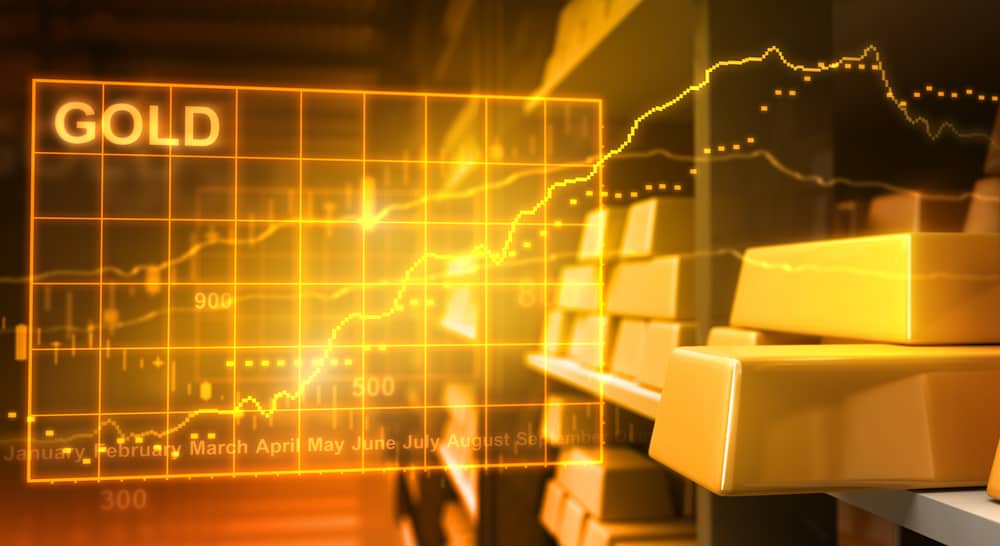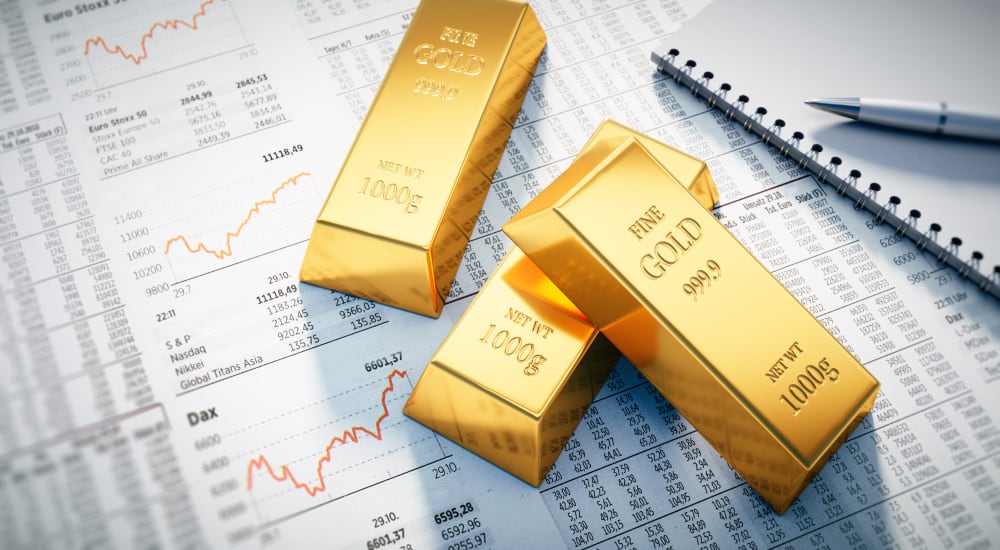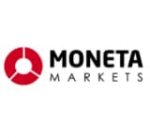
Gold is a classic store of value and a significant precious metal to invest in. As opposed to currencies, it is not dependent on the whims of the governments and central banks. Gold prices are not affected by fiscal and monetary policy but will always be of high worth— unlike currencies, which may become worthless due to conditions like uncontrolled inflation. As such, you may be curious of how to trade gold.
Many traders use the precious metal as a store of value since it is tangible. Owing to its special position in the world’s economic and political systems, the gold market offers great liquidity and significant profit chances in virtually all conditions. While many may prefer to hold the metal directly, equities and options markets provide leverage with controlled risk.
Trading gold is not hard to learn, although you need to acquire skills over time to be profitable at it. If you are a beginner, you should take the time to study the procedure carefully. With the information you will find in this article, you will be able to learn how to trade gold – a market that is altogether different to forex and commodity trading. You will also learn about gold markets, factors that affect gold’s price, and how to choose a broker.
Gold vs. Forex
How to go about trading gold vs forex? Gold differs from currencies because of its intrinsic value and durability. Gold has value outside of the banking and economic systems as a physical commodity. This makes it a perfect asset for investors wishing to protect their money from potential market volatility, bank collapses, or economic recessions. As a result of this value, the price of gold generally climbs during times of economic turmoil as investors seek safe havens for their money.
Currency trading, on the other hand, necessitates a high level of leverage and fees. This form of trading is far more concerned with profit and risk, whereas gold is concerned with stability. If you’re saving for a future pension or just want to preserve your current wealth, investing in gold is a far superior alternative for guaranteeing that your investments maintain their value even in unpredictable economic times.
What Affects the Price of Gold?

Although there is no single system that controls the price of gold, a variety of variables influence price swings in the precious metal, which include the following:
Demand and Supply
Demand and Supply influence gold price fluctuations, as is the case with other precious assets. Increased demand in the face of constricted or poor supply tends to drive up the price of any commodity or service. An oversupply of an item or service with stagnant or weak demand, on the other hand, might cause prices to fall.
For example, in Q4 2021, gold demand rose by almost 50% – representing a high not seen in the previous 10 quarters. Demand (excluding OTC markets) increased to 4,02lt. Making up for losses during the height of the COVID pandemic, this rise fell broadly in line with heightened consumer demand for the metal in the technology and jewellery sectors.
Inflation
Inflation is frequently an indication of a struggling economy, during that time central banks will add to the currency supply. As a result of the increased availability of notes, the currency will devalue. As such, investors rush to gold, which holds its value during inflationary times, driving up the price of the precious metal. In periods of deflation, however, gold is no longer desired as a hedge, and its price decreases as investors shift their funds to other assets.
Currency Movements
Another strong influencer is the movement of currencies, particularly the US dollar, because the price of gold is denominated in dollars. Currencies and commodities throughout the world appreciate in value as the dollar declines – a declining dollar tends to push gold prices higher. A stronger US currency, on the other hand, is frequently the result of a booming US economy. As gold and the US dollar have an inverse connection, it also lowers gold prices. In 2016, a lower US dollar played a key role in driving gold prices up.
Gold Production
Remember that, unlike other modern investments, gold is a physical commodity with limited supply. As a result, gold production must be included in the price calculation, with the metal’s current supply volume influencing cost in the same manner that demand does. If mining grows more sophisticated, we may expect gold’s intrinsic worth to rise as the raw material becomes scarcer.
Wealth Protection and Hedging
Gold’s inherent worth means it can withstand greater economic volatility than other assets, making it a safer investment for investors during difficult times. As a result, it’s a popular hedging strategy since it protects against economic shocks such as rising inflation and currency depreciation – the price of gold per ounce may rise as traders hedge against it.
How to Trade Gold

It’s critical to grasp the fundamentals of gold trading before opening a trading account. Investors have various possibilities when it comes to gold trading in today’s markets:
- Bullion
Individual investors and banks alike buy physical gold in the form of bars and coins as a store of value. Bullion investors can keep their gold in a safe at home or lease an external high storage facility by trading extra dollars. However, the high costs of storage and insurance frequently prevent highly active investors from purchasing the metal outright.
- Gold stocks
Stocks can be a method to obtain indirect exposure to gold by trading or investing in them. It’s crucial to remember that gold stocks don’t always move in lockstep with gold bullion since many other variables influence share values.
- Gold ETFs
Trading or investing in ETFs provides you with a much broader exposure than a single position, making it a popular approach to diversifying a portfolio. ETFs are low-cost investments that strive to mimic market returns rather than beat them.
- Gold futures
Traders can bet on future gold price changes by purchasing exchange-traded contracts using these gold trading derivative instruments. You will have to keep your part of the bargain, whether it’s through a physical or monetary settlement.
Quantity and quality are standardised in futures contracts – only the price is determined by market forces. When buying a futures contract, the trader has the option of accepting the agreed-upon delivery date or performing a ‘rollover.’ The contract can be extended for a later delivery date when it is rolled over.
- Gold contracts for difference (CFDs)
Gold CFDs are short-term orders to purchase or sell a certain amount of gold. CFDs on gold have a predetermined expiration date. The profits earned by trading gold CFDs are subject to price fluctuations throughout the contract.
How to Trade Gold Using Technical Analysis

Source: IG
For those who prefer technical analysis, becoming familiar with prior highs and lows, trendlines, and chart patterns are some of the methods to get started. When gold price increases, the clear targets will be a significant previous high above the present level and a previous low when the price is falling.
A line on the chart that is connected to a prior high is above the present level in an uptrend acts as a resistance, while a line connecting recent higher lows acts as a support. The opposite is true in a falling market. Head and shoulders, double top and double bottoms are chart patterns that can be employed, just as they are when trading currency pairs.
The key to technical analysis is to use it to predict and determine future price moves. By familiarising yourself with the range of patterns and analysis, traders can employ this knowledge to maximise and enhance their trading strategies.
How to Choose a Broker
Every online broker offers a distinct set of services and tradable items, so make sure you pick one with the best characteristics. When considering your options, keep these in mind to be sure that a broker meets your expectations.
Strict Regulations
A large financial regulatory body should regulate any internet broker. The Financial Conduct Authority (FCA) in the United Kingdom, the Australian Securities and Investments Commission (ASIC), the Commodities Futures Trading Commission (CFTC), and the National Futures Association (NFA) in the United States are examples of such regulators. Brokers regulated in Europe must also adhere to the EU’s Markets in Financial Instruments Directive (MiFID).
Minimum Spreads, Commissions, and Fees
While spreads and fees have little influence on long-term traders or investors, hefty charges of this nature can have a substantial impact on individuals who use active short-term trading techniques. As a result, it’s a good idea to ask about any trading, cash transfer, or gold storage fees that could apply to your activity.
Good Research
A competent broker will frequently have its own research department that provides fundamental and technical analysis to help clients make better decisions about their trading and investing.
Customer Service Expertise
In the event of an error or a pressing query, traders and investors may need to reach out to their broker right away. A good and prompt customer service team with a live chat option, phone access, email assistance, and a thorough FAQ to address frequent inquiries is essential for any broker.
Methods of Funding and Withdrawal
Although all brokers accept credit wires and credit or debit cards, traders should try to look into other options. The lowest costs and quickest transaction speeds are provided by online payment processors and cryptocurrencies. It’s also a good idea to keep day-to-day banking and investing or trading operations distinct. Clients will have more control over financial activities, which will make filing taxes easier each year.
When it comes to finding a broker to meet your trading requirements, look no further than our list of top gold trading brokers.
| Broker | Features | Min Deposit | EURUSD Spread | ||
|---|---|---|---|---|---|
 Your capital is at risk
US Clients: No Regulated : Yes Your capital is at risk
US Clients: No Regulated : Yes
|
– Regulated by FCA, FSCA, CMA and FSC |
$200 | ECN 0.1, Standard 1.6 | ||
 Your capital is at risk
US Clients: No Regulated : Yes Your capital is at risk
US Clients: No Regulated : Yes
|
– 40% New Member Bonus
|
$100 | Fixed |
Sign
Up
Europe* CFDs are complex instruments and come with a high risk of losing money rapidly due to leverage. 79% of retail investor accounts lose money when trading CFDs with this provider. You should consider whether you understand how CFDs work and whether you can afford to take the high risk of losing your money.
|
|
 Between 74-89 % of retail investor accounts lose money when trading CFDs
US Clients: No Regulated : Yes Between 74-89 % of retail investor accounts lose money when trading CFDs
US Clients: No Regulated : Yes
|
|
$200 | NDD 0.09 / Standard 0.69 |
Sign
Up
Between 74-89 % of retail investor accounts lose money when trading CFDs
|
|
 * 82% of retail investor accounts lose money when trading CFDs with this provider. You should consider whether you can afford to take the high risk of losing your money
US Clients: No Regulated : Yes * 82% of retail investor accounts lose money when trading CFDs with this provider. You should consider whether you can afford to take the high risk of losing your money
US Clients: No Regulated : Yes
|
|
100GBP/AUD/EUR/USD | variable |
Sign
Up
* 82% of retail investor accounts lose money when trading CFDs with this provider. You should consider whether you can afford to take the high risk of losing your money
|
|
 Your capital is at risk
US Clients: No Regulated : Yes Your capital is at risk
US Clients: No Regulated : Yes
|
– Flexible leverage up to 500:1 |
$200 | From 0.1 | ||
 Your capital is at risk
US Clients: No Regulated : Yes Your capital is at risk
US Clients: No Regulated : Yes
|
$50 | 0.02 | |||
 61% of retail CFD accounts lose money
US Clients: No Regulated : Yes 61% of retail CFD accounts lose money
US Clients: No Regulated : Yes
|
|
$50 (varying by Country) | from 1 |
Sign
Up
*Don’t invest unless you’re prepared to lose all the money you invest. This is a high-risk investment and you should not expect to be protected if something goes wrong. Take 2 mins to learn more
|
|
 Your capital is at risk
US Clients: No Regulated : Yes Your capital is at risk
US Clients: No Regulated : Yes
|
|
$5 | From 0.0 pips | ||
 Your capital is at risk
US Clients: No Regulated : Yes Your capital is at risk
US Clients: No Regulated : Yes
|
– CySEC, FCA, FSCA, SCB Regulated |
$100 | |||
|
|
|||||
Conclusion
Trading gold requires that you learn about the market to gain profitably. Here we’ve discussed what you need to know about the gold market, how to trade, and a list of top brokers for gold trading.